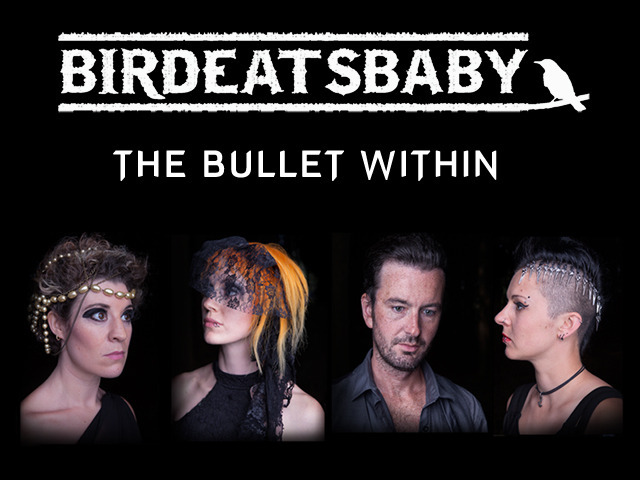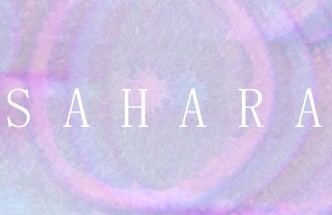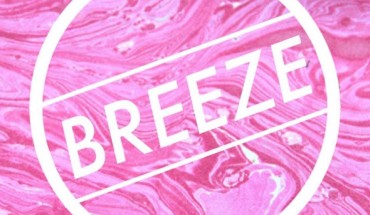‘The Bullet Within’ (Dead Round Eyes Records, 2014) is the third studio album from Brighton-based band Birdeatsbaby and seems to carry you throughout unexplored lands, full of mysteries and secrets.
The album opens with ‘The Bullet’, which has previously been released as a single. The piano intro reminds you of the golden age of Amanda Palmer and Brian Viglione’s Dresden Dolls; but the passionate lyrics of Mishkin Fitzgerald immediately emerge as the peculiar strength you need to be guided into this pop-noir world, whose sources of inspiration range from Muse to Patti Smith. ‘The Bullet’ turns out to be the perfect album opener as it successfully displays all the trademarks you can find throughout the whole album: piano melodies mixed with passionate violins, rocking guitars and haunting melodies whose pathos reaches one of its key moments in ‘Hands of Orlac’, fifth track of the album. Here the violins are gradually give way to the piano, but some explosive Muse-like guitars are already waiting at the door to take control of the track. If the beat of ‘Enemies Like Me’, with its bass riffs and drums, fails to ease you into relaxation, Melora Creager’s violin (she has previously worked with Nirvana and Marilyn Manson) in ‘Into the Black’ gives birth to a catchy ‘lullaby’ that invites you for a short rest, before the arrival of the haunting ‘Tenthook’ – a song which ends in a crescendo-heavy vortex of sounds. One of the album peaks is, however, the duet between Mishkin Fitzgerald and singer-songwriter Gabby Young in ‘Spiders’: their voices perfectly meet each other and successfully create an increasing dark-shaded atmosphere full of energy and passion – “..it’s a bad life you chose to live”.
‘The Bullet Within’ never loses its momentum: every song has something to offer with regards to melodies, arrangements and lyrics. But Birdeatsbaby’s particular strength lies in the way in which they are able to fuse a wide range of influences together (from Muse to Chopin, from Patti Smith to Liszt), while Mishkin Fitzgerald’s voice – whose charisma reminds you of the best PJ Harvey – works as a binding agent. This is the album’s most distinguishing and constant feature, alongside the original arrangements and ethereal atmosphere.
Marcella Sartore
@MarcyStar





